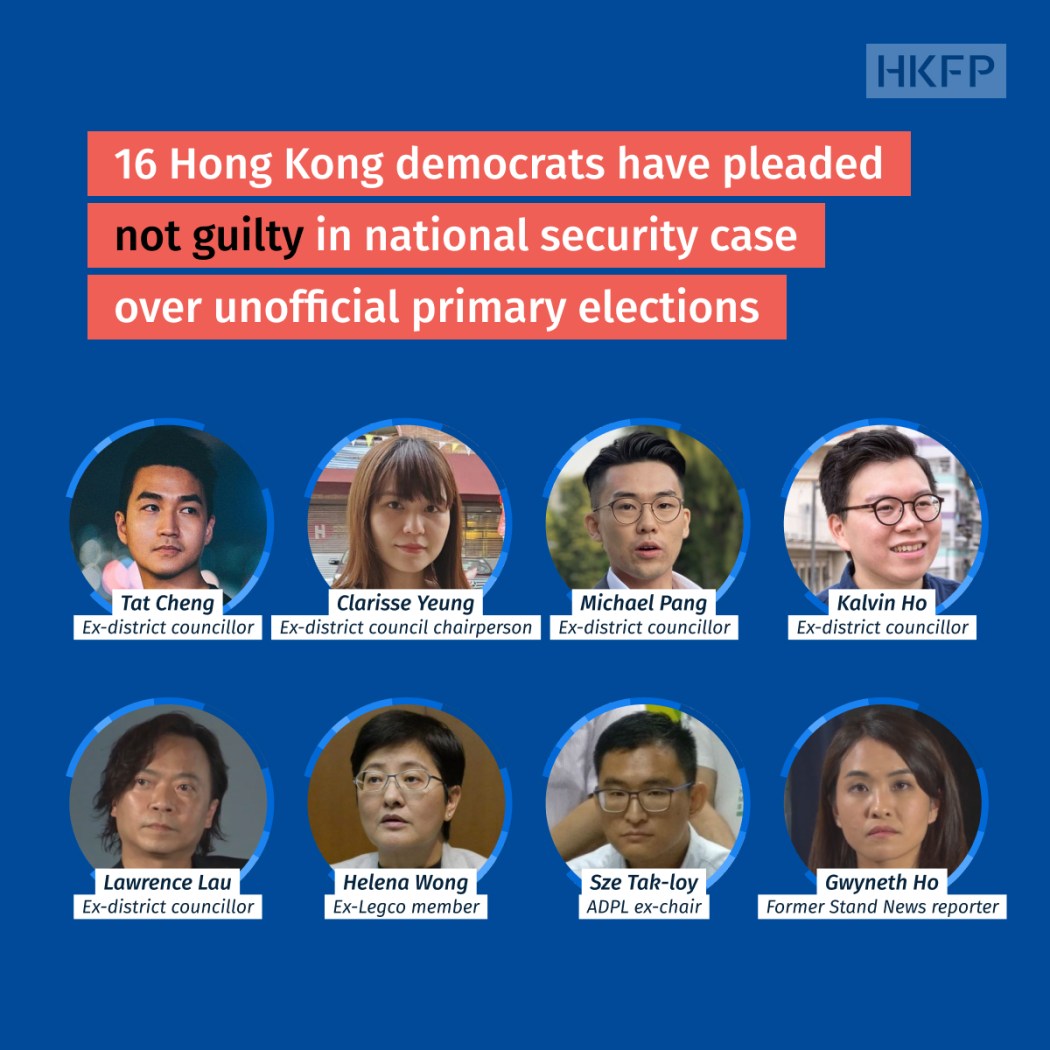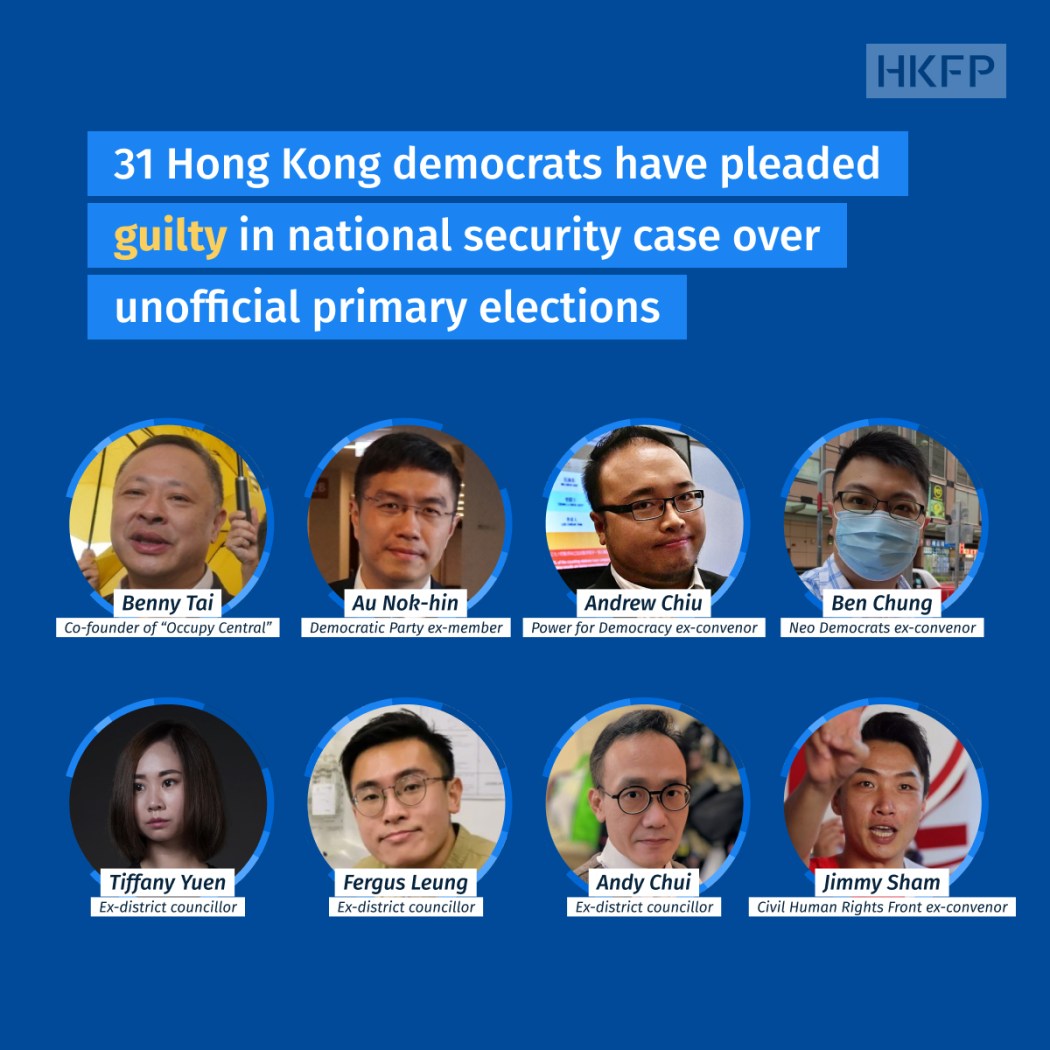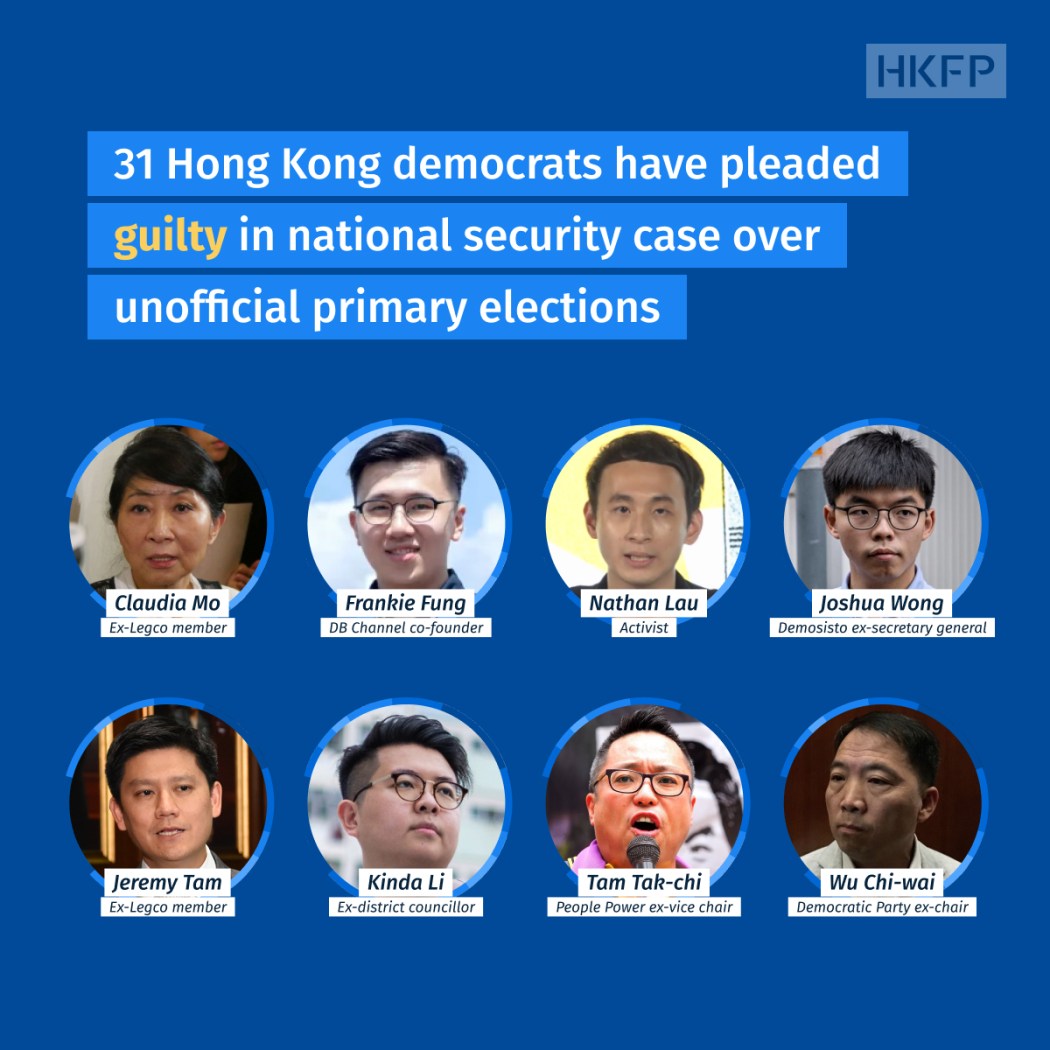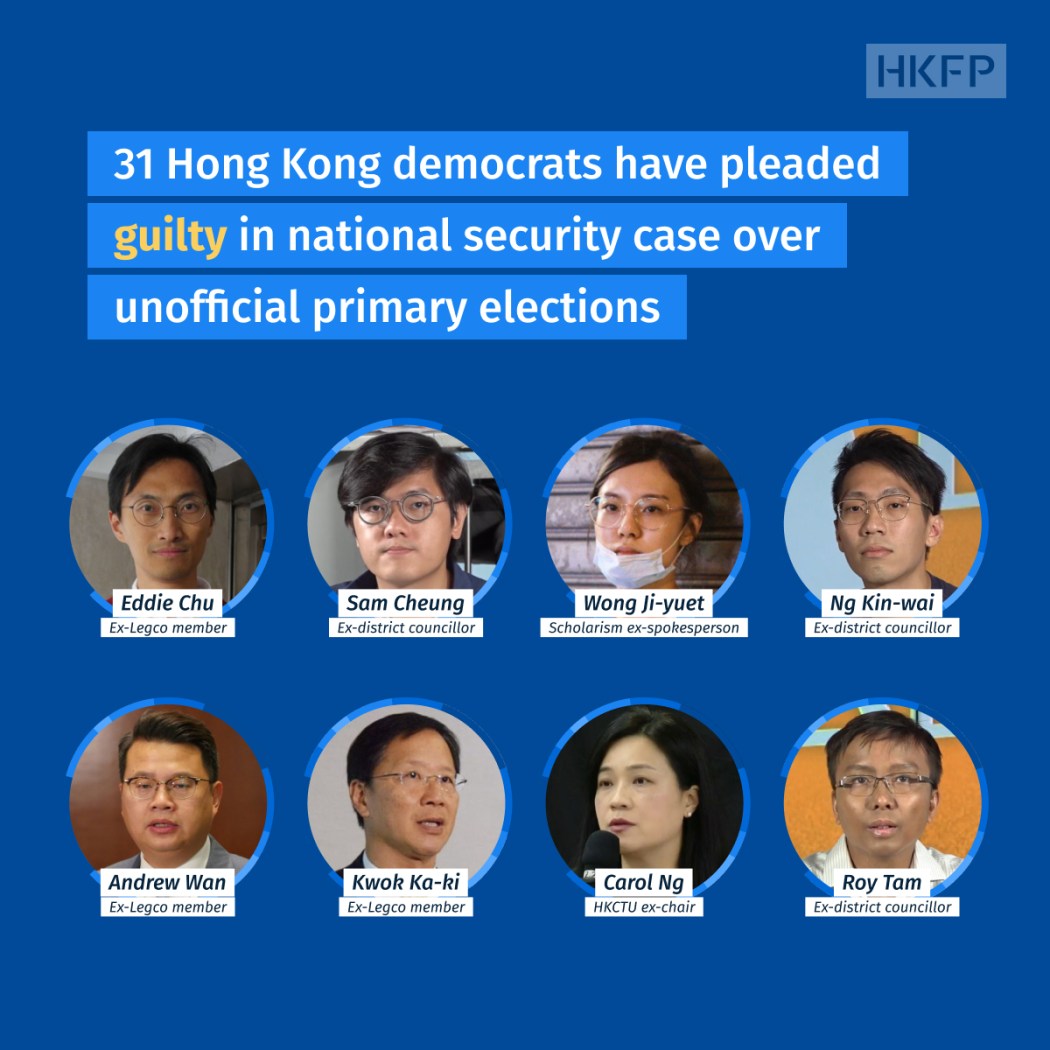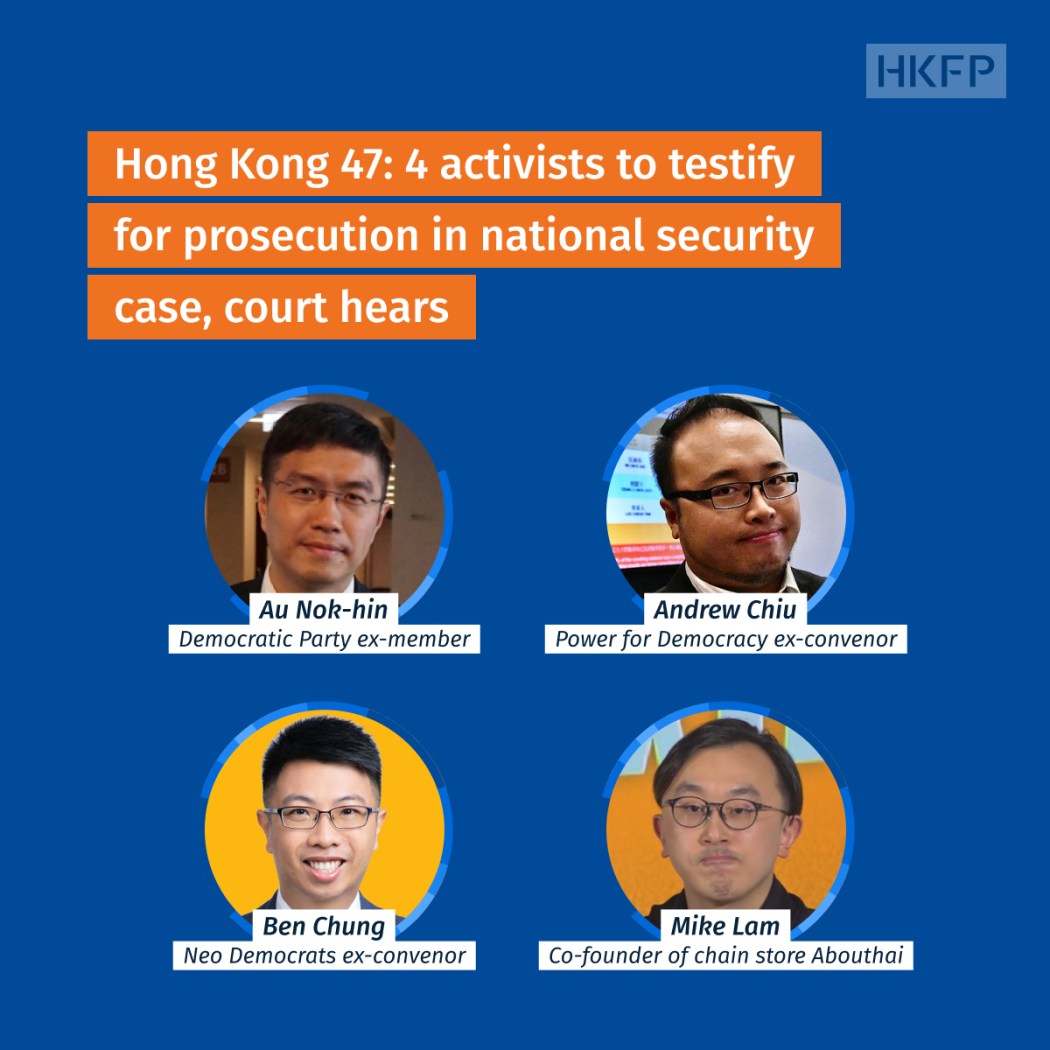Hong Kong barrister Lawrence Lau, one of the 47 pro-democracy figures charged with conspiring to commit subversion, has testified that he never received WhatsApp messages from the organisers of an unofficial legislative primary poll because he “did not like [the] software.”

Friday marked the second day of the testimony of the 55-year-old barrister, who was also a former Sham Shui Po district councillor and represented himself in the closely-watched case. He is currently facing trial alongside 15 democrats, after they pleaded not guilty to the subversion charge which could land them up to life behind bars if convicted.
The group, together with 31 other defendants who have pleaded guilty, stand accused of organising, or taking part in, an unofficial legislative primary election held in July 2020 as part of a plan to seize majority control of the 70-seat legislature before the city’s electoral overhaul.
Prosecutors have alleged that the democrats intended to abuse their powers as lawmakers to indiscriminately vote down government bills, if their plan been carried out to fruition. They conspired to paralyse government operations, cause the chief executive to dissolve the Legislative Council, and ultimately force the city’s leader to resign, prosecutors allege.
Use of WhatsApp
On Friday, the barrister told the panel of designated national security judges Andrew Chan, Alex Lee and Johnny Chan that he had not received any messages from the primary election organisers through WhatsApp, which had been used to disseminate information related to the unofficial poll.
Lau said he had never used the messaging app, and would communicate with his family and friends through calls and SMS messages.

Judge Andrew Chan cast doubt on Lau’s testimony that he did not use WhatsApp at all, given he had a smartphone and the messaging app was the platform on which the primary poll organisers shared documents and other relevant information. It was a “convenient way out” for Lau to claim that he never used the messaging app, Chan said.
In response, Lau said he “did not like [the] software” and said his phone, which was seized by the police, could be examined if necessary to back up his testimony. Prosecutors asked for Lau’s phone password and login details of his Apple account, after the barrister said he objected to giving the prosecution access to the confiscated device.
He voluntarily wrote down his phone password on a piece of paper, while refusing to divulge his Apple ID, saying that information was not required for checking his iMessages.
Judge Lee repeatedly reminded the barrister that the burden of proof was on the prosecution, and the defendant had no obligation to assist them.
“I got nothing to hide,” Lau told the court.
Prosecutors later told the court that Lau’s phone could not be unlocked as the barrister provided a four-digit code, while the device required a six-digit password. Lau could not recall the remaining digits, Chau said.
At the end of his testimony, Lau made a final remark on what he described as “non-use” of WhatsApp, saying that he had no television set in his home but books, music and two cats.
“It is a chosen way of living,” he said.
Online declaration
On his first day of testimony on Thursday, Lau denied having signed an online declaration titled “Resolute Resistance, Inked Without Regret,” which was signed by 33 defendants in the case, political groups the Civic Party and Neo Democrats on behalf of their members taking part in the primary poll, and activists Nathan Law and Sunny Cheung, who fled Hong Kong before the democrats were rounded up.
The declaration included an undertaking that the signatory would deploy powers conferred to the legislature under the Basic Law, including vetoing the budget, to compel the chief executive to respond to the five demands advocated by protesters during the 2019 extradition bill unrest.
Protesters demanded the government to withdraw the bill, set up an independent inquiry into accusations of excessive use of force by the police, scrap its designation of the protests as a riot, release all those arrested and implement “double universal suffrage” for the Legislative Council and Chief Executive elections.

The barrister on Friday maintained that he did not sign such a declaration. When asked why he did not ask for his name to be removed, Lau said it was to avoid “election campaign suicide.”
Election forum notes
The barrister was grilled by the prosecution and the judges on a set of election forum notes seized from his District Council office, which mentioned “the rule of law is dead.” Lau told the court that he was a “veteran debater” and did not prepare the notes, nor did he ask his campaign team to make such a document.
Ahead of the primaries, democrats partnered with a number of media outlets, including the now-shuttered Stand News and online radio station D100, to broadcast election forums to educate potential voters about the candidates.
“I have no idea who prepare[d] this… They were totally ignorant of who I was,” Lau said.
When asked by Judge Alex Lee why someone would write notes for Lau’s election forum “out of the blue,” the barrister said the question amounted to asking him to speculate and he could not provide an answer.

The non-jury trial will resume on Monday morning with former district councillor Sze Tak-loy taking the witness stand. Former Democratic Party lawmaker Helena Wong was set to give testimony after Lau, but her lawyer told the court on Friday that she decided against it and would not call any defence witness.
Most of the 47 pro-democracy figures charged with subversion have been held in custody since a marathon bail hearing in March 2021 saw many denied bail. Those who pleaded guilty will be sentenced after their co-defendants currently facing trial. Proceedings, which began in February, were scheduled to last for 90 days.
In June 2020, Beijing inserted national security legislation directly into Hong Kong’s mini-constitution – bypassing the local legislature – following a year of pro-democracy protests and unrest. It criminalised subversion, secession, collusion with foreign forces and terrorist acts, which were broadly defined to include disruption to transport and other infrastructure. The move gave police sweeping new powers, alarming democrats, civil society groups and trade partners, as such laws have been used broadly to silence and punish dissidents in China. However, the authorities say it has restored stability and peace to the city.
Support HKFP | Policies & Ethics | Error/typo? | Contact Us | Newsletter | Transparency & Annual Report | Apps
Help safeguard press freedom & keep HKFP free for all readers by supporting our team


